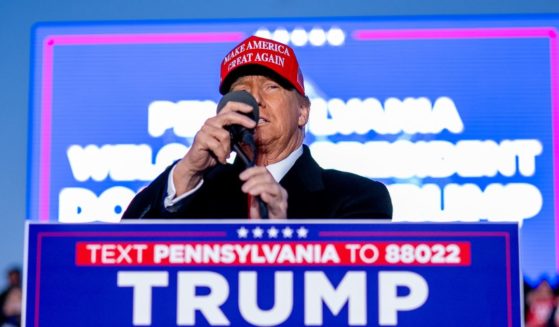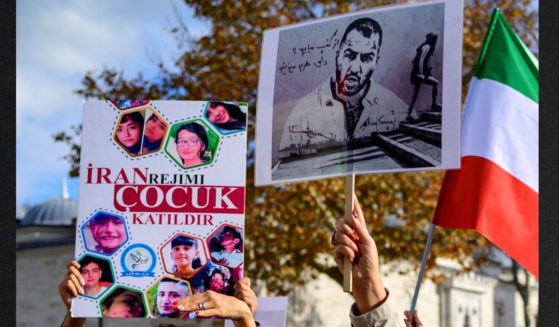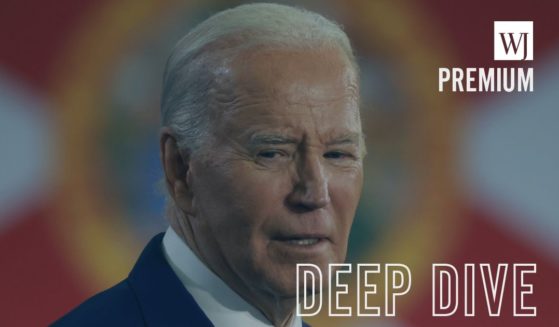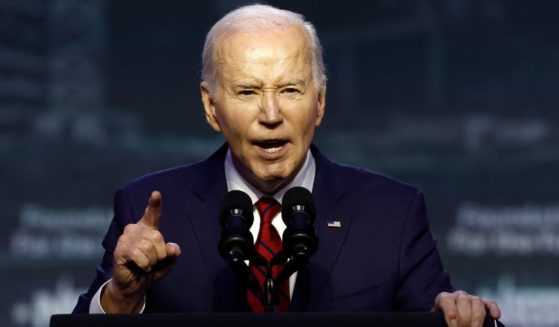School District Tries To Get Away with Silencing Pro-Trump Student, Federal Judge Steps In
We’ve reached a point in American society where expressing support for the sitting president of our country is considered “too political” for some people.
That’s the excuse a school district gave for painting over a portrait of President Donald Trump painted on a student’s parking spot. Thankfully, a federal judge stepped in to uphold the student’s right to free speech.
As part of what sounds like a very cool tradition, seniors at a Louisiana high school in Washington Parish can pay $25 to paint their assigned parking spaces. The students must get approval for their paintings, but the school’s policy appears to ban only lewd images and language and using other students’ names, as reported by The New Orleans Advocate.
This year, however, Washington schools Superintendent Frances Varnado also tried to exclude a painting of President Trump.
Ned Thomas, a senior at Pine Junior-Senior High School, commissioned for his parking spot a portrait of President Trump wearing a stars-and-stripes bandana and sunglasses.
He was originally granted approval for the portrait by the principal, but after it was painted, Superintendent Varnado — with the backing of the school board — deemed the portrait “too political” and covered it with gray paint.
Again, it was a portrait of the sitting U.S. president wearing sunglasses and a bandana decorated like the American flag.
I wonder if the school board would have considered a portrait of Obama “too political” during his presidency.
Varnado claimed she was trying to avoid controversy, but her actions had the opposite effect. In addition to angry emails, Thomas’ parents filed a federal lawsuit seeking an injunction.
U.S. District Judge Eldon Fallon — who happened to be appointed by President Bill Clinton — ruled in favor of Thomas and free speech.
“The painting of President Trump cannot reasonably be described as obscene or plainly offensive on its face, nor can it be construed as school-sponsored speech,” Fallon wrote.
The painting, he continued, “depicts the sitting President of the United States. This is not a case involving a symbol such as a Confederate flag, which has an established meaning as a ‘symbol of racism and intolerance, regardless of whatever other meanings may be associated with it.”
Judge Fallon recognized that the school acted in the name of avoiding controversy, but found that didn’t abrogate Thomas’ right to free speech.
As Jonathan Turley has pointed out, the 1969 Supreme Court case Tinker v. Des Moines Independent Community School District determined that students “do not shed their constitutional rights to freedom of speech or expression at the schoolhouse gate.”
While courts often try to limit or ignore this decision, Fallon actually relied on that case and found that the school had violated Thomas’ constitutional rights.
The portrait of President Trump will be repainted on Thomas’ parking spot soon.
This is a straightforward freedom-of-speech case being decided correctly. Political speech is a primary form of speech that must be allowed pursuant to the First Amendment.
One of the hallmarks of American free speech is the right to voice political opinions — even unpopular political opinions — without fear of punishment.
A portrait of the president is clearly political speech, protected by the First Amendment.
Good on Judge Fallon for upholding the Constitution.
Truth and Accuracy
We are committed to truth and accuracy in all of our journalism. Read our editorial standards.












